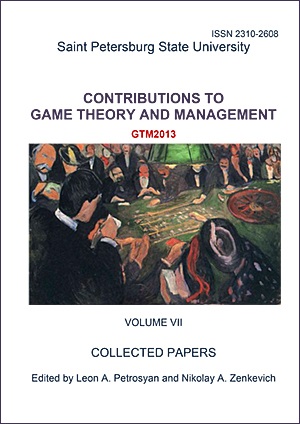Unravelling Conditions for Successful Change Management Through Evolutionary Games of Deterrence
Abstract
The paper proposes analyze the conditions for successful change management requiring information transmission and transformation of the information received into change implementation. To that end, starting from an elementary standard matrix game considering only information transmission, the paper will extend the case by considering that stakeholders have to simultaneously take decisions concerning the two above dimensions. A dynamic approach supported by the Replicator Dynamics model will then be proposed, aiming at analyzing asymptotic behaviors. The difficulties often met when trying to solve differential systems will be pointed out. Therefore a new method will be developed, leaning on a bridging in the evolutionary context between standard games and a particular type of qualitative games, called Games of Deterrence, and which object is to analyze strategies playability. Through the equivalence between the two types of games, the methodology will enable to remove some question marks in the analysis of asymptotic behaviors, thus contributing to a better understanding of conditions fostering change pervasion, and in particular of the role played by incentives.
Keywords:
change, deterrence, evolution, incentives, playability, Replicator Dynamics, stability
Downloads
References
Downloads
Published
How to Cite
Issue
Section
License
Articles of "Contributions to Game Theory and Management" are open access distributed under the terms of the License Agreement with Saint Petersburg State University, which permits to the authors unrestricted distribution and self-archiving free of charge.




